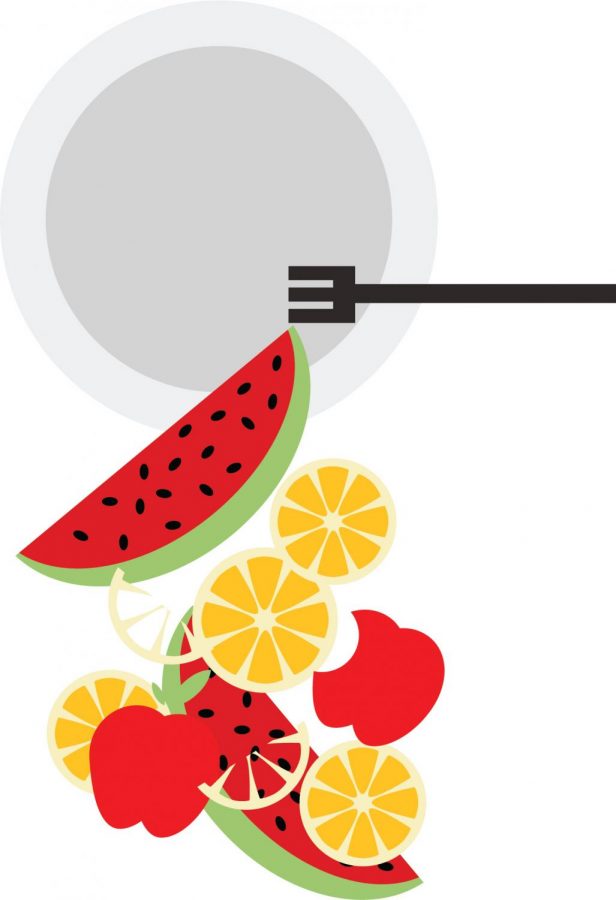Social media challenge aimed to minimize food waste
April 20, 2021
From April 12-18, graduate students from across the country took to social media to create a weeklong challenge meant to inspire people through videos, tips and recipes to minimize food waste.
The project, called the “7 Day Food Waste Reduction Challenge,” was created and monitored by the Innovations at the Nexus of Food, Energy and Water Systems Educational Resources (INFEWS-ER) Food Waste Cohort, which included seven graduate students from universities like South Dakota State University, Texas Tech, University of Minnesota-Twin Cities and more.
“We decided to do a social media campaign,” said Alex Michels, a wildlife and fisheries sciences graduate student from SDSU and a member of the cohort. “We thought that would be the best way to reach the most people.”
Food waste accounts for about 30-40% of the United States’ food supply and can come from a variety of sources, according to the U.S. Department of Agriculture. Produce can be damaged by animals, molds or bacteria during transportation and processing. Retail sellers will throw out food because of storage problems, over-ordering or produce appearances, like damaged fruits and vegetables.
At the consumer level, people may throw away extra food they don’t eat or that has gone bad, which was what the challenge focused on addressing.
The challenge was spread across three platforms: TikTok, Facebook and Instagram. Each day of the weeklong event covered a different strategy to minimize food waste.
Day One challenged followers to do a “food waste audit” and take pictures of their meals before and after eating to make them aware of their personal food waste. Day Two taught the meaning behind different expiration date labels, as confusion around labels leads to 20% of food waste.
“A lot of people don’t know what the difference is between ‘best by’ and ‘use by’ or all those little nuances of expiration dates,” Michels said. “Expiration dates aren’t federally regulated, the food company themselves can make up whatever wording they want.”
During Day Three, followers received tips on how to make efficient grocery lists to avoid food waste, and Day Four offered tips for food preparation and storage to make food last longer. Day Five showcased a few zero-waste recipes, like vegetable stock and apple peel chips, and Day Six focused on reusing leftovers to make new dishes. Finally, Day Seven gave examples of ways to repurpose food scraps, like using orange peels to make natural cleaner.
By the end of the week, the Instagram account had 179 followers, the Facebook account had 79 and the TikTok account had 30 followers. Tessa Clarizio, a graduate student from the University of Illinois at Urbana-Champaign and member of the cohort, said though TikTok had the lowest number of followers, most of the videos from that platform were shared to the other two sites. Facebook posts reached an estimated 3,400 people, and TikTok videos had over 2,607 views total.
“I think overall our campaign was successful, especially on Facebook and Instagram,” Clarizio said.
Michels said talking about and trying to cut back on food waste is important because “if food waste was a country, it would be the world’s third largest emitter of greenhouse gases,” after China and the U.S.
“If you think about the millions of people, if not billions … living in poverty and struggling with food security, a lot of people in this world are going hungry,” Michels said.
She also stressed that college students can help minimize food waste, as it is up to everyone to do their part to help lessen its impacts.
“I think it’s everybody’s responsibility to care about the environment because we’re all living here,” Michels said.
Clarizio agreed, saying simply being educated about the effects of food waste is a step in the right direction.
“College students can improve sustainability at their university through education and taking action,” Clarizio said. “Education can look like taking classes or attending lectures or other events focused on sustainability and sharing this knowledge with others.”
Now that the challenge has concluded, the food waste cohort will present their project and how it did at a conference April 21. Michels said she would also like to use what she learned from the project to start food waste initiatives on campus to promote more sustainability.
For those interested in learning more about food waste, the TikTok, Facebook and Instagram accounts are still available to view after the challenge. Michels said other resources, like ReFED, a database and nonprofit dedicated to ending food loss, can be helpful, as well.
“If you want to reduce food waste, you can,” Michels said. “It just takes that willpower and the dedication to do it.”























